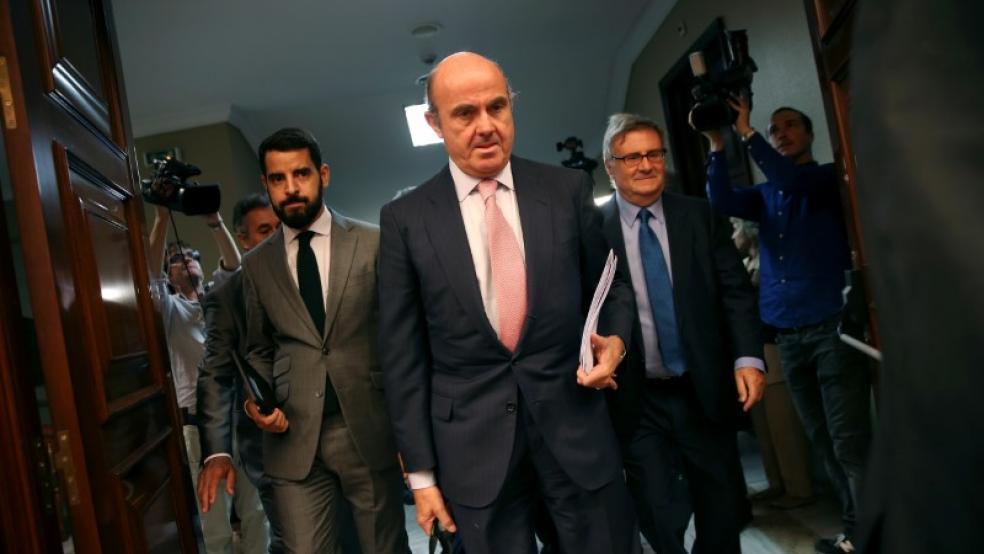MADRID (Reuters) - Spanish Prime Minister Mariano Rajoy announced new social welfare support on Tuesday and touted his government's economic record in a bid to woo back crisis-worn voters, who are increasingly turning to upstart parties as elections loom.
Rajoy - whose center-right People's Party (PP) is expected to use economic recovery as its trump card in a general election to be held by year-end - raised the government's economic growth forecast for 2015 to 2.4 percent, from 2 percent.He also announced several welfare measures, including support for single parents, in a parliamentary address peppered with indirect swipes at insurgent parties such as leftist, anti-establishment Podemos ('We Can'), which is gaining in polls."The wheels of economic activity are turning again, job creation is starting up," Rajoy said in his annual state of the nation speech, while also warning there would be no quick fix. People "should not pay attention to those who propose magic remedies," he said. Spain is emerging from a six-year economic downturn, thanks in part to rising consumer spending. Falling oil prices and borrowing costs are also giving output a boost, which should help the PP's chances of re-election. Regional polls are also due in the coming months. With unemployment stubbornly high, however - nearly one in four Spaniards is out of a job - Rajoy still has to persuade voters the recovery is reaching families. "The only thing the PP has left is ... the improvement in the economy," said Fernando Vallespin, political scientist at the Autonomous University of Madrid. "Where it's not obvious yet is among those who lost out in the crisis, such as the unemployed. The social situation is still bad."The PP and the opposition Socialists, tainted by corruption scandals, have dominated Spanish politics for four decades but now face a challenge from the emergence of two new parties.Ciudadanos (Citizens), which emerged from the northeastern Catalonia region and is considered center-right by analysts, is gaining traction and eating into the PP's voter base as it campaigns against corruption. Anti-establishment Podemos, launched a year ago, threatens to unseat the Socialists as the country's number two party and has topped some polls as a possible victor in the election. "Rajoy should fly the flag of fear a little less and worry more about presenting policies," Podemos, which does not have seats in the Spanish parliament, said on Twitter.GREECE PARALLELThe threat to Spain's mainstream parties comes after anti-austerity Syriza's sweep to power in Greece - an upset Rajoy drew parallels with in his speech.Avoiding a sovereign rescue in 2012, when Spain was in the eye of a euro zone crisis, was the "greatest social policy" of his time in office, Rajoy said. Spain did need a 41.3-billion-euro ($47 billion) European aid package that year for its weakest banks, however. The PP government has had a mixed record on reforms in recent years, with many economists arguing that an overhaul of the labor market, for instance, had not gone far enough.Unemployment also remains above levels when the PP came to power in late 2011, though officials have forecast it will edge down further by year end. The government is still planning more social measures before the election, such as aid for indebted families. Rajoy also said he planned to crack down further on tax fraud, cut bureaucracy in the legal system and improve laws regarding safety in the workplace. (Editing by Susan Fenton)Spain's Rajoy hails economic upturn in pitch to voters

© Susana Vera / Reuters



